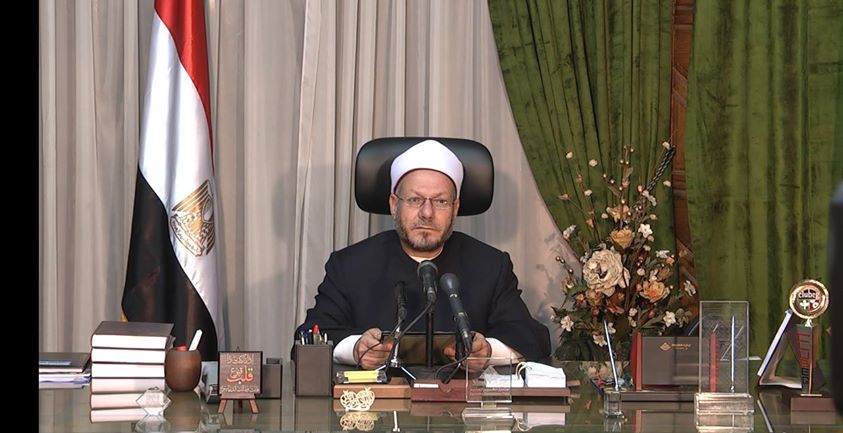The Grand Mufti: The media has a moral responsibility not to host fame seekers non-specialists to debate on religious issues

Dr. Shawky Allam, the Grand Mufti of Egypt, said that Dar Al-Iftaa welcomes all inquirers and the questions of those who seek the correct understanding of Islamic issues. He added that Islam encourages and supports freedom of thought provided it is based on a scholarly methodology, is in the higher interest of humanity, and is free from offensive suspicions concerning religious fundamentals and beliefs.
During an interview with Amr Abdul Hameed on Al-Hayat satellite channel, Dr. Allam called upon those who have any inquires related to Islamic issues to seek trustworthy scholars because matters concerning religion must not be treated carelessly. He also said that Dar Al-Iftaa follows the moderate Azhari methodology and receives 1500 fatwas daily, a matter that reflects the increasing confidence in Dar Al-Iftaa.
Concerning the suspicions cast against the Sahih of Al-Bukhari, the Grand Mufti said that no one, no matter how knowledgeable, will match Al-Bukhari’s unparalleled methodology in compiling prophetic traditions.
Dr. Allam expressed his belief that there are evil intentions behind raising misconceptions and doubts against Muslim scholars and their heritage especially at the present critical time. He added that some of the perpetrators are fame seekers and lack knowledge and that raising doubts against the sunna will ultimately lead to raising doubts against the Qur`an and Islam.
The Grand Mufti stressed that the Prophet [peace and blessings be upon him] testified to his Companions’ integrity and it is from them that the sunna was transmitted to us and it is from them that we derive religion.
According to him, the chaos concerning religious discourse stems from fame seekers from among non-specialists who belligerently discuss religious issues in an unscholarly fashion. And since the media is to a great extent responsible for this, Dr. Allam called upon the media apparatus to follow a binding covenant of honor and only broach the topics which benefit the nation and Islam. He added that only those who meet the conditions of a mufti and which are attained through vast knowledge and an ability to understand reality and consequences are eligible to issue fatwas. He explained that the craft of issuing fatwas goes beyond mere knowledge. Dr. Allam said, “We depend on the media to enlighten the masses and acquaint them with the culture of Istifta` [soliciting Islamic legal verdicts].”
Concerning the spread of extremist and terrorist ideologies, and attributing them to Islam, Dr. Allam emphasized that Islam will always call to construction and that it rejects extremism and ideas that call for marginalizing religion.
Dr. Allam condemned the actions of ISIS and described them as un-Islamic; he said that such terrorist groups are supported by other entities. He expressed his confidence that such extremist ideas will not spread among Egyptians as long as the Azhar undertakes its historic role in guarding religion.
Dr. Allam expressed his respect for the Egyptian judiciary, its decisions, and the sovereignty of law. He said that he fully believes that it is impermissible to criticize court decisions. He added that the mufti’s opinion in capital punishment cases is a huge responsibility because it is related to ending human life. According to him, it is better for the mufti’s opinion to be consultative rather than authoritative because he only reviews the case papers. A judge on the other hand listens to evidences, estimates matters and is present during the different stages of collecting evidences whereas a mufti is not.
 Arabic
Arabic French
French Deutsch
Deutsch Urdu
Urdu Pashto
Pashto Swahili
Swahili Hausa
Hausa
